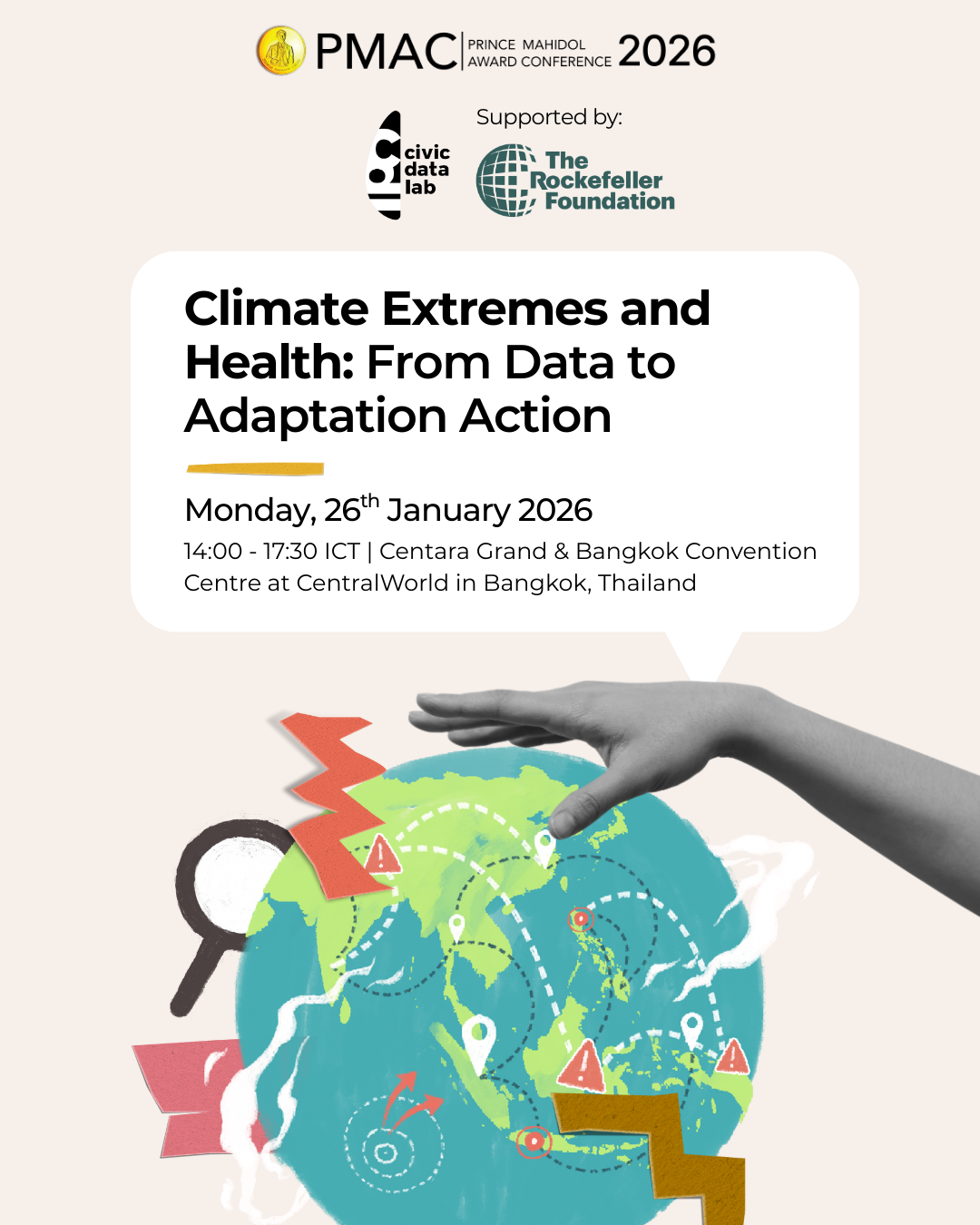Side Meetings
SMB311
Climate Extremes and Health: From Data to Adaptation Action
26
Jan
- CivicDataLab
- The Rockefeller Foundation

Across Asia, extreme heat is emerging as one of the most pressing climate threats to public health, productivity, and urban livelihoods. Rapid urbanization, limited green cover, and poor housing conditions are intensifying exposure to rising temperatures, pushing vulnerable populations to the edge. The intersection of heat and health now defines a critical frontier for adaptation planning and policy action.
Evidence from initiatives such as the Intelligent Data Solution for Disaster Risk Reduction (IDS-DRR) and the Asia-Pacific Climate Health Data Collaborative shows how data-driven innovation and AI tools can help cities predict, prepare for, and respond to heat risks more effectively.
This session will bring together city leaders, public health experts, researchers, and development partners to explore how technology, open data, and local governance can enable urban heat resilience across Asia.
-
Showcase how data systems and AI tools strengthen urban health adaptation to extreme heat.
-
Demonstrate actionable models (IDS-DRR, Asia-Pacific Climate Health Data Collaborative) linking heat data, policy, and local governance.
-
Discuss integration of heat-health insights into Resilience Budgets, Green Budgeting, and urban health systems.
-
Facilitate an interactive group exercise to co-develop a City Heat-Health Action Framework connecting evidence to action.
-
Identify collaboration pathways and financing opportunities for regional heat resilience.

